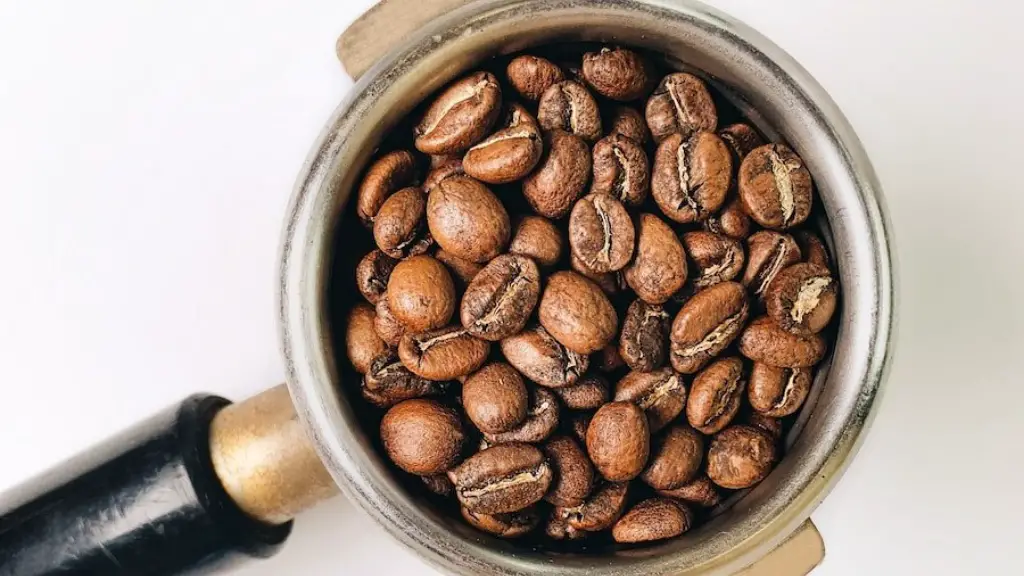Pregnant women are strongly advised to avoid drinking coffee during their pregnancy as it can have a negative impact on the health of both the baby and mother.
Coffee contains caffeine, which is known to be very harmful for a developing fetus. It can lead to several health complications such as increased risk of miscarriage and low birth weight. Caffeine can also cause dehydration and insomnia, both of which can affect the quality of life for the pregnant woman.
Coffee also contains other compounds that can be harmful to pregnant women such as tannins, which can interfere with the absorption of vital nutrients, and oils that may irritate the digestive system.
Therefore, it is important that pregnant women avoid drinking coffee or limit their intake to a minimum amount in order to protect their health and that of their unborn child.
Recommended Daily Intake of Caffeine for Pregnant Women
Pregnant women should be careful about their caffeine intake, as the substance can easily cross the placenta and affect a developing baby’s health. It is recommended that pregnant women consume no more than 200 milligrams per day, the equivalent of one 8-ounce cup of coffee. Consuming too much caffeine can lead to a variety of complications, including an increased risk of miscarriage and low birth weight. Caffeine can also disrupt sleep patterns and affect fetal growth. Additionally, pregnant women should avoid energy drinks, which tend to contain high amounts of caffeine and other potentially harmful ingredients. To ensure a healthy pregnancy, it is best for pregnant women to limit their caffeine consumption or eliminate it altogether.
Risks Involved with Drinking Caffeine During Pregnancy
Pregnant women may be advised to abstain from drinking coffee and other caffeinated beverages due to the potential risks associated with it. Caffeine can cause an increase in blood pressure, heart rate, and can lead to anxiety or insomnia. Too much caffeine consumption has been linked to an increased risk of miscarriage or preterm labor. Additionally, caffeine can cross the placenta and could potentially affect the baby’s heart rate and sleep patterns. Moreover, excessive caffeine intake during pregnancy can also lead to an increased risk of low birth weight or even stillbirth. Therefore, it is important for pregnant women to limit their caffeine intake while they are pregnant.
It is important to note that decaffeinated coffee is not necessarily safe for pregnant women either. Decaffeinated coffee still contains small amounts of caffeine and other compounds which may be detrimental during pregnancy. Additionally, some herbal teas may contain high levels of caffeine as well, so it is important to read labels carefully before consuming them. Ultimately, for a healthy pregnancy, it is best for pregnant women to avoid drinking coffee and other caffeinated beverages altogether.
Alternatives to Coffee During Pregnancy
Pregnant women are advised to avoid or limit their consumption of coffee due to its high caffeine content. Caffeine can cross the placenta and reach the fetus, potentially causing health risks. Therefore, it is important for pregnant women to find alternatives for coffee. Herbal teas such as ginger tea, chamomile tea, or raspberry leaf tea can provide a warm, flavorful drink without any caffeine. Decaffeinated versions of tea and coffee are also available if desired. Additionally, sparkling water with a splash of fruit juice is a refreshing option that won’t add extra caffeine to your diet. Other alternatives include milk-based drinks such as hot cocoa or milkshakes, which can be enjoyed in moderation.
Different Types of Coffee and Their Caffeine Content
Coffee is one of the most popular beverages in the world. It has a unique taste and aroma, as well as numerous health benefits. However, it also contains caffeine, a stimulant that can be dangerous for pregnant women. Different types of coffee have varying amounts of caffeine, so it is important to understand the caffeine content in each type.
Instant coffee generally has the lowest amount of caffeine, with around 27 milligrams per 8-ounce cup. Brewed coffee has slightly more caffeine than instant, with around 95 milligrams per 8-ounce cup. Espresso is the strongest form of coffee, containing around 63 milligrams per 1-ounce shot. Decaf coffee still contains some caffeine, usually around 2 milligrams per 8-ounce cup.
Due to the high levels of caffeine in regular coffee, pregnant women should avoid drinking it. Caffeine can cross the placental barrier and affect the baby’s growth and development. High levels of caffeine consumption during pregnancy can also increase the risk of miscarriage or preterm birth. For this reason, pregnant women should opt for decaf or other low-caffeine options like herbal tea instead of regular coffee.
For those who are not pregnant and wish to reduce their caffeine intake, decaf coffee is a great alternative. It still provides many health benefits without any significant amount of caffeine that could cause unwanted side effects like jitters or insomnia.
Unborn Babies and Caffeine Consumption
Pregnant women are advised to avoid caffeine consumption due to its potential risks to the unborn baby. Caffeine is a stimulant found in many common drinks and foods, including coffee, tea, energy drinks, chocolate and soda. Even though many studies have not definitively linked caffeine consumption to harm in unborn babies, the American College of Obstetricians and Gynecologists recommends that pregnant women consume no more than 200 milligrams of caffeine per day. This is equivalent to about one 12-ounce cup of coffee.
Caffeine can cross the placenta and enter the fetus’s bloodstream, which can cause changes in its heart rate. Too much caffeine could also lead to an increased risk of miscarriage or premature birth. Additionally, caffeine has been linked with lower birth weight, although more research is needed in this area.
Overall, it is best for pregnant women to limit their caffeine intake as much as possible. The safest option is generally to avoid coffee, tea and other caffeinated beverages completely during pregnancy. For those who wish to consume some caffeine during pregnancy, it is important to monitor their intake carefully and talk with a doctor about any concerns they may have.
Why Expecting Mothers Should Avoid Drinking Coffee
Pregnant women should avoid drinking coffee because it can have a number of adverse effects on both the mother and her unborn baby. For starters, caffeine can increase blood pressure and heart rate, which can be dangerous for pregnant women. Additionally, high levels of caffeine consumption have been linked to an increased risk of miscarriage and low birth weight. Furthermore, coffee may interfere with the absorption of essential nutrients needed for the development of the baby.
Coffee also contains a substance called polycyclic aromatic hydrocarbons (PAHs). PAHs have been linked to health issues such as birth defects and developmental delays in infants. Finally, coffee may contribute to feelings of anxiety and irritability in pregnant women, which can be detrimental to both physical and mental health.
For these reasons, it is best for expecting mothers to limit or avoid drinking coffee while pregnant. There are plenty of other healthier alternatives that can help expecting mothers get the energy they need without compromising their health or their baby’s development.
To Sum It All Up
Pregnant women should not drink coffee due to the health risks associated with caffeine consumption during pregnancy. Caffeine has been linked to low birth weight, preterm labor, and miscarriage. Therefore, pregnant women should limit their intake of coffee and other sources of caffeine. Drinking coffee during pregnancy may have long-term consequences for both the mother and child.
In conclusion, it is best for pregnant women to avoid drinking coffee. While occasional cups may not have serious effects, it is recommended to err on the side of caution and abstain from drinking coffee during pregnancy.





